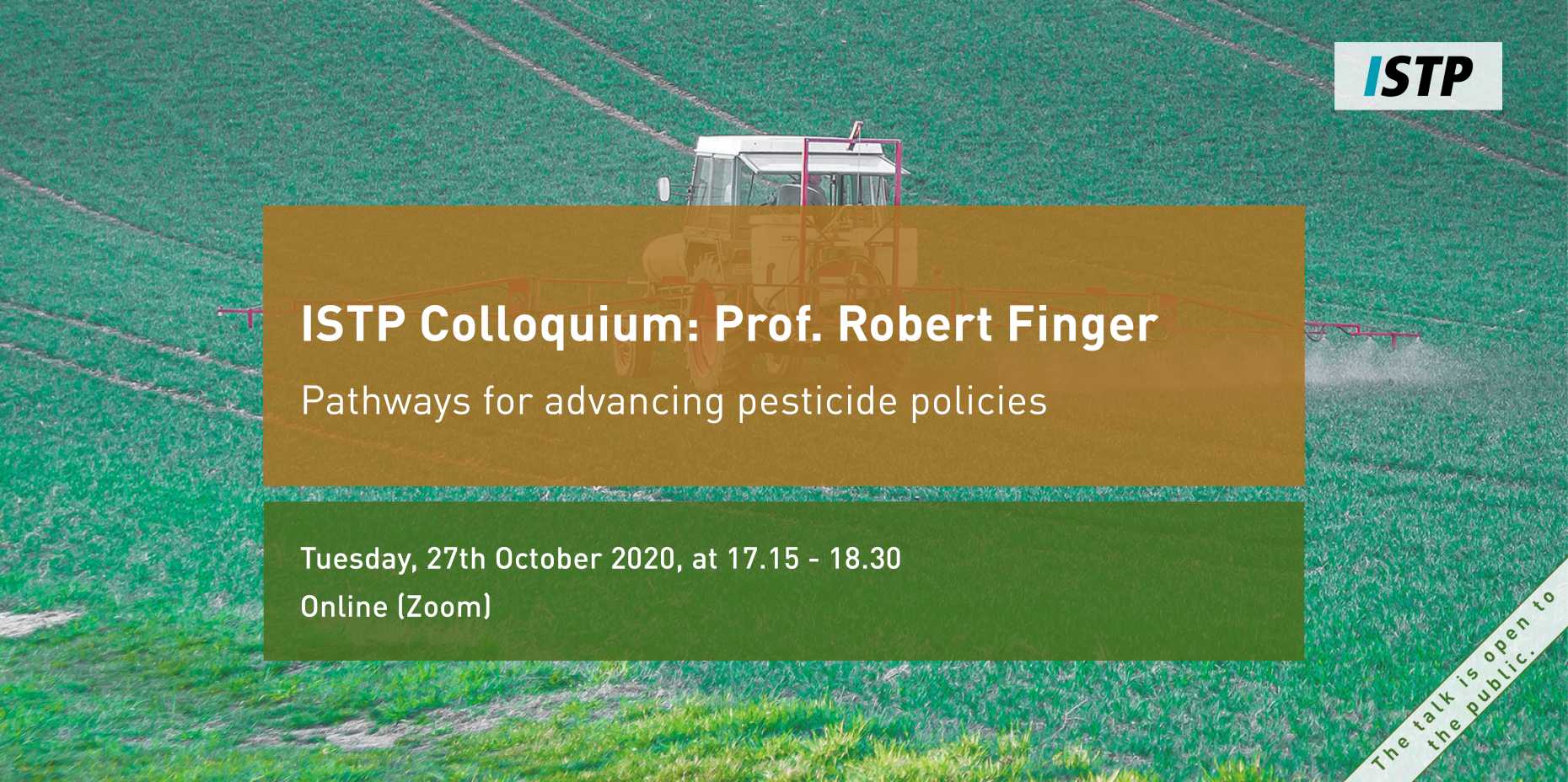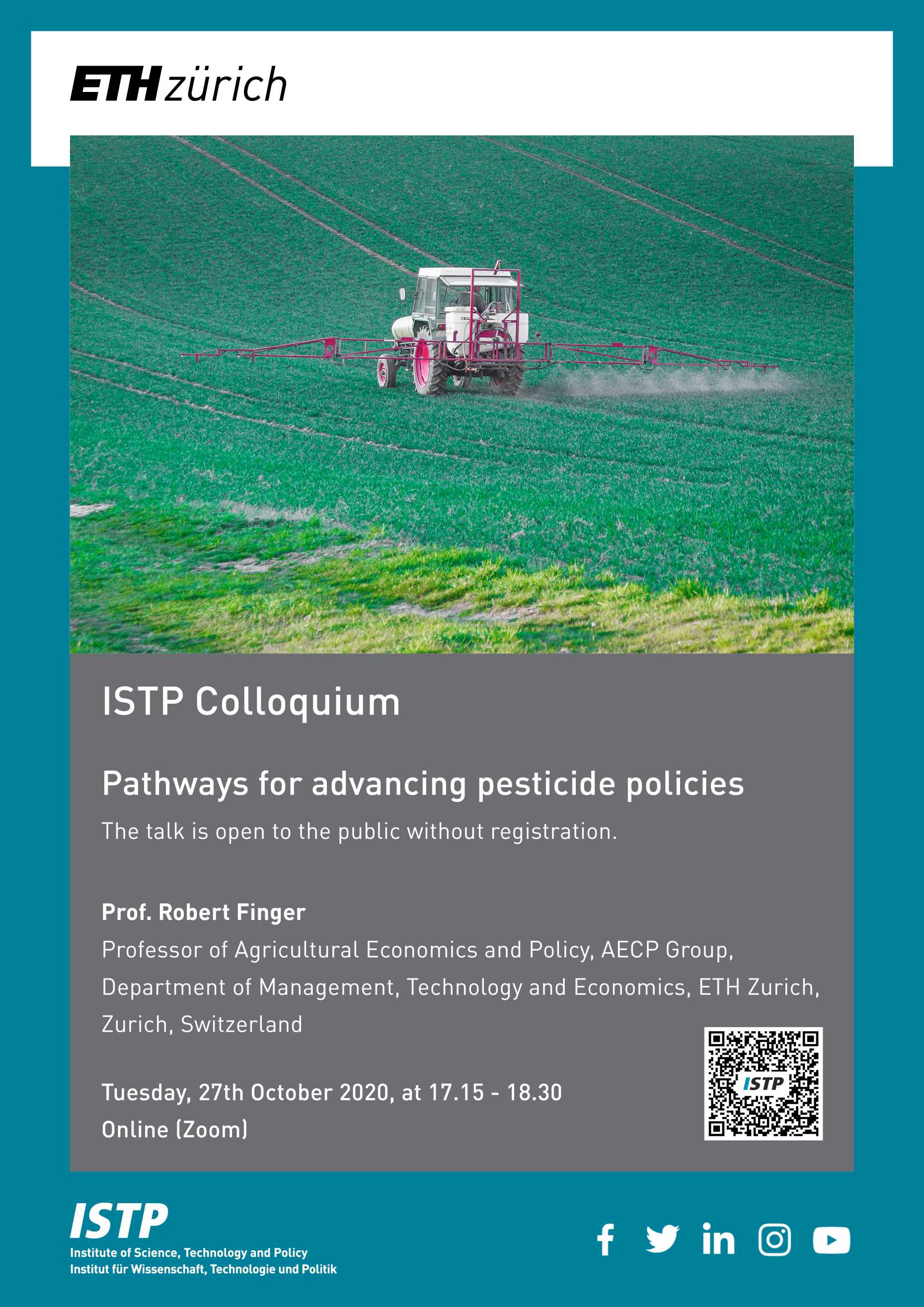ISTP Colloquium: Pathways for advancing pesticide policies
In our upcoming colloquium talk, ETH Prof. Robert Finger from the Agricultural Economics and Policy Group names key challenges for the reduction of environmental and health risks from agricultural pesticide use and presents a framework developed in collaboration with Dr. Niklas Möhring for improving current policies. He also provides insights into economics and policies on pesticide risk reduction in Swiss agriculture using selected case studies.
Abstract
Numerous pesticide policies have been introduced to mitigate the risks of pesticide use, but most have not been successful in reaching usage reduction goals. Here, we name key challenges for the reduction of environmental and health risks from agricultural pesticide use and develop a framework for improving current policies. We demonstrate the need for policies to encompass all actors in the food value chain. By adopting a multi-disciplinary approach, we suggest ten key steps to achieve a reduction in pesticide risks. We highlight how new technologies and regulatory frameworks can be implemented and aligned with all actors in food value chains. Finally, we discuss major trade-offs and areas of tension with other agricultural policy goals and propose a holistic approach to advancing pesticide policies.
In this talk, we also present insights in economics and policies on pesticide risk reduction in Swiss agriculture using selected case studies, e.g. on a large scale pesticide free wheat production program. We also connect to ongoing policy debates in Switzerland and two popular initiatives in this field.
This contribution is joint work with Dr. Niklas Möhring.
- Find out more details about the Colloquium talk and the speaker.
- For further information about the Colloquium schedule of guest talks during the Autumn Semester 2020, please visit the Colloquia webpage.

